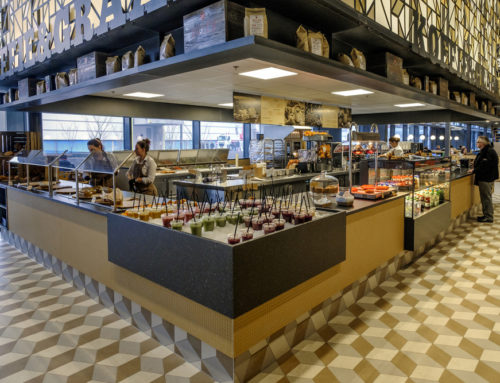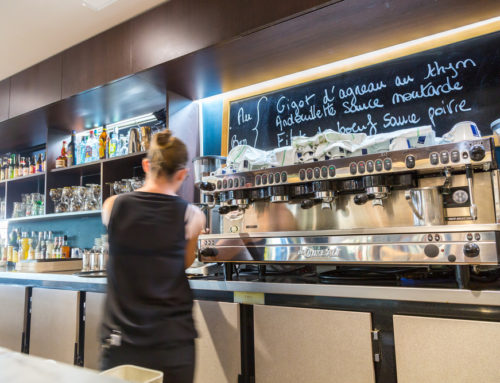A server approaches and tells us there’s a problem. Perhaps the food is cold or they’ve been waiting too long. Whatever it is, the guests are upset and they want to speak to a manager.
Our hearts are beating as we walk towards the table, wondering what we’re going to say.
Anyone who’s ever run a shift has dealt with upset patrons – it’s part of our job. The difference between a great outcome and a terrible one is in how the situation is handled.
If we can acknowledge that most guests who come into our restaurant are simply looking for a great experience and that they don’t want to have to complain about anything, I think it becomes easier to be on their side when any situation arises.
After all, our duty as representatives of the industry is to be there for our guests. This is especially true in those situations where an error has been made.
The great news is that dealing with upset tables is a lot easier than we think. Here are three steps to ensure unhappy guests leave happy.
Our First Job is to Simply Listen
The moment we hear a table is unhappy, we start to assume the worst. We start thinking about the solution so that we can move on. What can I say to make this better?
The answer is to say nothing. All we must do is listen.
“Hey folks, my name is John and I’m the manager on shift today. How’s everything going over here?” Or we might say, “Your server, Ashley, tells me there was a hair in your food. Is that right?”
It doesn’t matter what we say or how we say it so much as how genuine we are. We need to hear them out, and once they’re finished, we need to thank them for telling us.
Unfortunately, many managers make it worse. They approach the table with their superhero capes, equipped with free food offers, dead-set on giving the guest whatever it is they need so they can be quiet and go back to enjoying themselves.
But how does that show we care about them or even our own business? A true leader would want the feedback because we want our restaurant to improve.
To execute this flawlessly, after listening and nodding as the guest explains the situation, it helps to immediately repeat it back to them in our own words. Ask for their feedback, then thank them for it.
We must Take Ownership
Friends and I went to a restaurant recently for some appetizers and drinks, and unfortunately, we found a hair in our food. Being that we work in the industry ourselves, the last thing we wanted to do was make a big deal about this, but we did want to say something.
We eventually called the manager over and she listened to our situation. The first thing she did after nodding her way through our story was take full responsibility for it, even though we all knew it wasn’t her fault – at least not directly.
“I apologize, guys. No one wants to find a hair in their food. It’s my show today and I’m embarrassed that it happened on my watch.”
Imagine that if instead of taking responsibility for the hair in our food, she had said, “I can’t believe this happened! I’m going back to the kitchen right now to get to the bottom of this!” All we wanted was for the manager to fix the problem, and now suddenly we feel like we just got someone in trouble.
What if she had blamed a server instead, or the expo for not looking hard enough before sending out the food?
Re-allocating the blame is not only immature, it’s not true leadership. As a representative of this business, a manager should understand that we’re a team – we’re in this together.
Believe it or not, a guest does not care one bit who’s to blame for any mistakes made. They expect more from us. They expect the best.
Next time we approach a table, let’s do so as a leader for our business. If a mistake has been made on our watch, it’s important we take full ownership for it. Whatever the actual problem may be, it’s something that can be dealt with after we help our guests.
It’s Time for Immediate Initiative
We’ve listened to everything the guest had to say and we’re confident they feel understood. We’ve also taken full responsibility for the problem since we’re the ones running the floor. Now what?
Here’s what we don’t want to do:
“I’m so sorry about the hair in your food! Is there anything I can do for you?”
While our intentions may be good, we are basically putting the guest on the spot by asking this question. No guest wants us to think they’re only complaining to get something from us. Most of these guests didn’t want to complain in the first place.
Something I always say to unhappy guests is, “I really want to make sure you leave here happy today, can I start by getting you a replacement appetizer?”
It’s not that any one solution is the solution, it’s that we’re providing one.
If we approached the table correctly by listening intently and taking full ownership, they will likely be quite satisfied already. Taking something off the bill or offering a round of drinks for their trouble is just the cherry on top. It’s how we can ensure the guests come back.
We’ve all seen a mistake or two happen when dining in a restaurant, but the difference was in how the situation was handled. We want our guests to feel like we actually care.
For that to happen, we must be willing to listen to negative feedback, take ownership for it, and take initiative by going above and beyond for them.
Let’s make sure that when guests leave our restaurant, they do so with smiles on their faces.









Leave A Comment